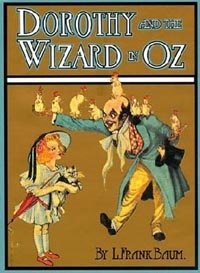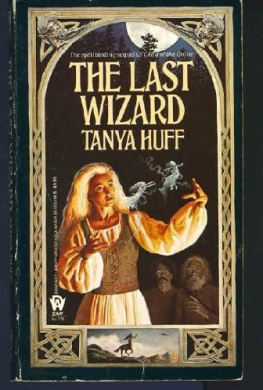Rick Shelley - The wizard at Mecq
Here you can read online Rick Shelley - The wizard at Mecq full text of the book (entire story) in english for free. Download pdf and epub, get meaning, cover and reviews about this ebook. genre: Romance novel. Description of the work, (preface) as well as reviews are available. Best literature library LitArk.com created for fans of good reading and offers a wide selection of genres:
Romance novel
Science fiction
Adventure
Detective
Science
History
Home and family
Prose
Art
Politics
Computer
Non-fiction
Religion
Business
Children
Humor
Choose a favorite category and find really read worthwhile books. Enjoy immersion in the world of imagination, feel the emotions of the characters or learn something new for yourself, make an fascinating discovery.

- Book:The wizard at Mecq
- Author:
- Genre:
- Rating:4 / 5
- Favourites:Add to favourites
- Your mark:
- 80
- 1
- 2
- 3
- 4
- 5
The wizard at Mecq: summary, description and annotation
We offer to read an annotation, description, summary or preface (depends on what the author of the book "The wizard at Mecq" wrote himself). If you haven't found the necessary information about the book — write in the comments, we will try to find it.
The wizard at Mecq — read online for free the complete book (whole text) full work
Below is the text of the book, divided by pages. System saving the place of the last page read, allows you to conveniently read the book "The wizard at Mecq" online for free, without having to search again every time where you left off. Put a bookmark, and you can go to the page where you finished reading at any time.
Font size:
Interval:
Bookmark:
Rick Shelley
The wizard at Mecq
PROLOGUE
I sit here alone now, with little future and a past that is becoming rapidly irrelevant. I have little need-and less desire-to lie. My tale is the truth, no matter how greatly it differs from the histories that others have offered. Few others have observed the passage of time from my vantage, and of those few, none has chosen to set down his observations for others to read. When the truth of our past is lost, we are all diminished. I would build a levee against the flood of lies and errors that threatens to overwhelm all truth.
I write of time and change, of gods and demons, of good and evil-all inevitably connected. I write of glory and shame-always intimately related. I write of life and death-for neither is complete without the other. I write not to offend but to enlighten. Perhaps I write only to satisfy some need in my own soul-if I have such a creature-but I hope, I believe, that my words will satisfy others, on some level. That may be the one vanity remaining to me.
The hot breath of summer blows lightly across me. It is fitting. For I start my narrative on a hot summer day such as this, in England, in the Year of Our Lord 1238. And there was great evil on the wind.
CHAPTER ONE
A man on a horse.
Without waiting for a tug on his reins or a spoken command, the horse stopped at the crest of a low ridge. The late morning sun was almost overhead. The man leaned on the pommel of his saddle and stared into the valley ahead and at the village it sheltered, off to his right a little.
" 'Yea, though I walk through the valley of the shadow of death,' " the man quoted softly. It was not quite a prayer, but neither was it an expression of derision at the drought-stricken valley in front of him. Though the man shared his true name with no one, he often allowed himself to be called Silvas.
The horse snorted.
"This looks like a scene from some mad priest's fevered nightmare," Silvas said. The voice sounded tired, perhaps depressed. In any case, it didn't seem to fit the speaker. Silvas appeared to be in his middle twenties, brawny and rugged, his skin tanned and weathered where it was exposed. The eyes that slowly scanned the valley were dark gray, almost black, with tiny flecks of indeterminate lighter color. Those eyes were sunk too deeply in his face for someone who otherwise appeared to be in the prime of manhood. Mostly the face was balanced and strong, though marred by a few dark wrinkles that made him appear brooding even in repose. His hair, light brown streaked with sun-bleached blond, reached almost to his shoulders, coarse and roughly cut. Silvas had the heavily muscled arms and shoulders, the calloused hands, of a warrior, but he was dressed in simple traveling clothes of gray above knee-length riding boots. He carried no weapons but for a long dagger with an ornate hilt that he wore on his belt.
Silvas dismounted with the exaggerated care of the old or infirm and stood next to his horse, Bay. Although Silvas was over six feet in height and two hundred pounds in weight, he was easily dwarfed by the animal.
"The smell isn't right for a priest's nightmare. Those have a unique odor," the horse said, turning his head to look down at Silvas. Bay was an equine giant, over eight feet tall at the withers. He was built along the bulky lines of a knight's destrier, exuding raw power with every movement. His hair was a reddish brown, as befitted a horse of his name, with white highlights mixed in through the full, flowing mane and tail. Bay's voice was a deep, rumbling bass, but his diction was clear, his accent that of the educated classes.
"One more wart on the butt of the kingdom," Silvas said. "There can't be many that we've missed." He spoke softly, with resignation or pity rather than distaste. "I always feel that by the time we finish riding circuit, I'll look like the decrepit old man these peasants always expect a wizard to be."
Bay snorted again, clearly in derision. "Why must we go through this gnashing of teeth every time we approach a new village?" he demanded. "It sheds no light, offers no comfort, adds no truth to the world."
"We go through it because I choose to go through it," Silvas replied sharply.
"Are you afraid to admit your feelings even to yourself?" Bay asked. "There is nothing wrong with passion."
"Passion? I have some great challenge to face-sometime, somewhere. All this" He didn't finish the thought. Instead he turned away from the horse and stared at the village below.
"You chose your life," Bay said impatiently. "You help all these people along the way because you would not turn your back on them if you could."
Silvas merely stared at the village, not even attempting to frame a reply.
"That is the village of Mecq," Bay said after a moment. "The hill below the village, to the right on this side of the river, is Mount Mecq. The ridge on the other side is Mount Balq. The river between is the Eyler."
For a protracted moment Silvas remained silent, absorbing the scene. Finally he said, "It doesn't look like much."
"This should be a fertile valley, like those around it, and in better times it has been," Bay observed. The valley was clearly anything but fertile now. The Eyler wound past the village toward a gap between Mount Mecq and Mount Balq, winding generally north through the English countryside toward Wales and the Irish Gulf. The only water visible in the riverbed was a thin trickle in the bottom of a watercourse that could have carried a hundred times the volume without threatening to overflow its banks. The village stood on the near side of the river, on the higher bank. Most of the valley, and the fields of the villagers, were across the river.
"The valley beyond the river is a floodplain," Bay reported. "In years of normal springs floods, the fields soak up enough water to return plentiful harvests. Mecq was once a prosperous village. But the floods have been poor for years, scarcely enough to grow a minimum of grain and vegetables to see the people and their few remaining animals through to the next harvest. The rains have been scant even longer, for more than a generation. Hunger and illness are common here."
"They could easily dam the river to hold water," Silvas suggested. He never questioned the accuracy of information Bay gave him. Whatever the sources, Bay's facts were never wrong.
"It has been attempted," Bay replied. "The last time it occasioned a short and inglorious war with the Duke of Blethye, whose demesne lies just downstream of the twin hills of Mecq and Balq."
Silvas let his gaze drift north along the Eyler past the village to the sharp cleft that carried the meager stream and a narrow road between the two hills. By focusing his vision tightly, Silvas could see objects at any distance in his line of sight as clearly as he could at arm's length. It was but a minor application of his will, of his magic. On the crest of Mount Mecq, the nearer height, a small castle, no more than a simple tower and low curtain wall, stood guard over the pass between the hills.
"The thane of Mecq has not the manpower to defend a dam against Blethye," Bay said, as if he could read his rider's mind, "and perhaps not the will. He sends messages of impotent anger and pleading to the king, but the fief is minor, too far from His Majesty's thoughts for him to send warriors. And the Duke of Blethye holds an important section of the border for him."
"There is evil here," Silvas said.
"There is evil everywhere," Bay countered.
There is indeed, Silvas thought. He took several steps away from the horse and continued to scan the valley: bone-dry earth clung to the roots of grain in the fields; peasants worked, their faces thin and devoid of expression; painfully thin animals tried to graze on scant grasses that were dry and dusty.
Font size:
Interval:
Bookmark:
Similar books «The wizard at Mecq»
Look at similar books to The wizard at Mecq. We have selected literature similar in name and meaning in the hope of providing readers with more options to find new, interesting, not yet read works.
Discussion, reviews of the book The wizard at Mecq and just readers' own opinions. Leave your comments, write what you think about the work, its meaning or the main characters. Specify what exactly you liked and what you didn't like, and why you think so.







